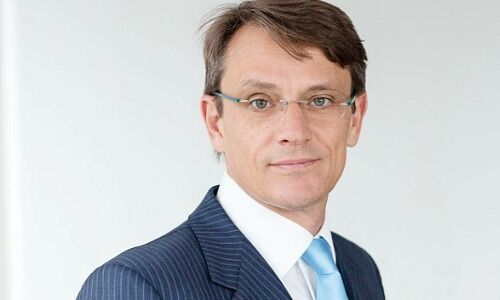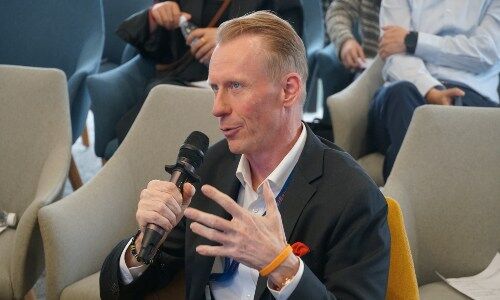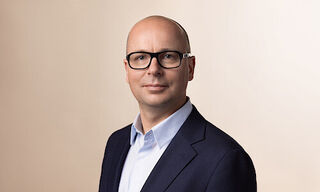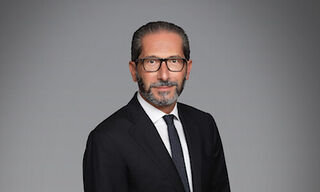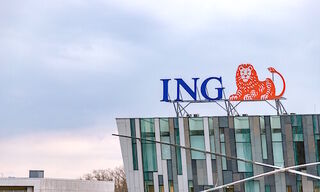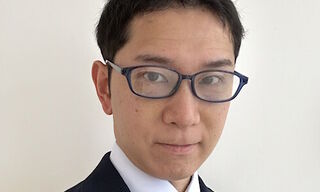Claudio de Sanctis leapt from Credit Suisse's top European wealth post to the helm of Deutsche Bank's private banking arm. In an exclusive interview with finews.asia, he admits how concerned he is about uncertainty in Asia.
Claudio de Sanctis, how concerned are you about the uncertainty in Asia?
We don’t take a quarter-on-quarter view on Asia, or any other market for that matter. My conviction that Asia will be the primary source of new business remains stronger than ever.
In our experience, if Hong Kong slows down, for example, then Singapore or Mumbai pick up the pace and offset it. I may be biased because I spent a portion of my career working in Singapore but the potential in Asia – the wealth, the caliber of its entrepreneurs – is staggering.
Do you worry about the higher risks associated with emerging markets?
If you want to get in trouble you can find it in any jurisdiction; there are nefarious assets in Europe as well. Ultimately, the risk-return profile of emerging markets is not that different from other markets: the higher risks are balanced by higher returns.
«We don't aim to be the most relevant private bank for every single client in the world»
The way forward is not in avoiding emerging markets altogether because we fear compliance risks. Instead, we need to focus on the organizational culture, ensuring we have the right people with the correct morals.
What geographies or segments will you focus on?
We don't aim to be the most relevant private bank for every single client in the world. The geographies we are focused on are Asia; the Middle East; Continental Europe and the East and West Coast of the U.S.
The bank’s model in Asia varies: in India, for example, you have been a universal bank for many years.
We are and we intend to continue to invest in that model but are not going to replicate it for the rest of Asia. Having said that our India business is very successful and our Non-Resident Indian business is the best in the industry.
What segments are you pursuing?
We are best positioned to compete in entrepreneurial families – these are the clients to whom we offer the most value.
«I don't feel a massive need to differentiate»
As a result, our collaboration with the asset management and global markets divisions have intensified over the last few months.
Are you worried about how you can differentiate your strategy from your predecessors and put your own stamp on it?
I don't feel a massive need to differentiate from Fabrizio [Campelli] – he did an amazing job of defining the franchise geographically. I come in from a markets perspective to define the segments we want to compete in. That is the next natural step in this evolution, the two strategies are complementary.
One-bank focus is a trend among large banks.
Our framework for investment- and private banks to collaborate is very sophisticated. We could make even more of it with a more disciplined sales structure.
«Revenues will be split 50-50 between the wealth management and global markets business»
Over the next 12 to 18 months, we hope our collaboration revenues will be multiples of what they are now.
How?
Over the next four to eight weeks, we will have in place a family office team based in London within the global markets business. The family office business will continue to be brought in by the relationship managers, but it will be executed with global markets.
Revenues will be split 50-50 between the wealth management and global markets business.
Will lending continue to be a big part of the strategy?
Lending will be core to any strategy at Deutsche Bank because no other bank has the expertise that we do in lending against a whole range of asset classes. Having said that, it is also a fundamental part of our strategy not to change our conservative risk profile in lending.
Can you be more specific?
We have capabilities in lending against assets that no one else on the street has.
«We have had a significant conversion rate of net new money from new bankers»
For example, we are just about the only large bank to lend against art; we are recognized as the number-one franchise for commercial real estate lending in the U.S.
How much of your revenue would you like to come from lending?
A good mix is for one-third of our growth to come from lending and two-thirds from investments.
Deutsche Bank has been very active in recruiting private bankers. Is that translating into new money?
We have had a significant conversion rate of net new money from new bankers. I believe this is probably because our hiring strategy is so focused.
«The beauty of this platform is that it is run as a boutique»
We will take on only ultra-high net worth bankers with established relationships with large families.
Amid all the changes, what would you like to retain about the business?
The beauty of this platform is that it is run as a boutique in terms of how flat it is – I am on the group management committee and also only a couple of steps away from any wealth management client.
But we are also one of the only firms to have booking capabilities in as many geographies as we do. We have a unique combination of a very international platform with bespoke boutique services.
Claudio de Sanctis is the head of wealth management at Deutsche Bank, which manages $230 billion in assets. Based in Zurich, de Sanctis is also the CEO of Deutsche Bank in Switzerland, a position he was appointed to when he joined the bank in December 2018. A career private banker, the 46-year-old Italian native was Credit Suisse's head of private banking in Europe and previously a managing director at UBS. He is a graduate of the Universita La Sapienza di Roma with a degree in philosophy.

